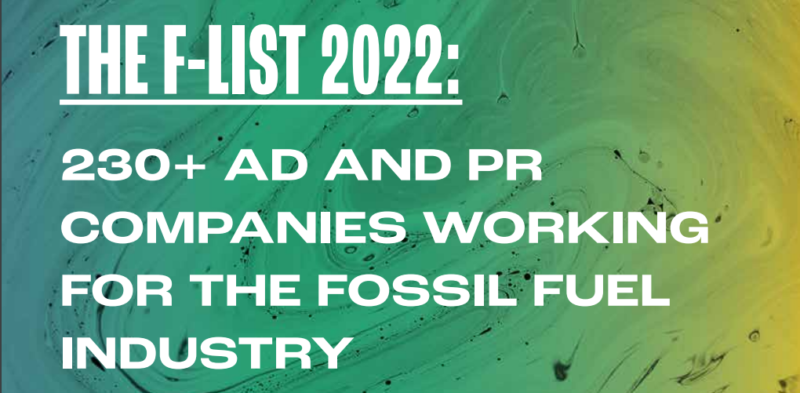2022 F-List calls out top Australian agencies for climate polluters
The 2022 edition of the F-List, a global independent investigation into advertising, media, and PR agencies working with climate polluting partners has found 239 agencies globally working with fossil fuel companies, with this year’s edition coming with a focus on the agencies working with top local polluters.
The F-List is compiled by Clean Creatives and Comms Declare, with the latter also calculating the top agencies by partner companies, using Scope 1 and 2 emissions data in Australia.



It is lists like this that take away from genuine efforts in improving the environment.
Why not Publicis and Toyota? As the largest car company in AU their product burns the most fuel… What about OMG with Qantas and Virgin – again, massive emitters of CO2, however not recognized as they are the end user not the producer.
Where do you draw the line?
There is so much Greenwashing or simply denying the impacts of burning Fossil Fuels, it is hard to know where to start. Less so “where do you draw the line.” You are right Toyota, Ford, Mitsubishi etc are all just as bad and the agencies that work for them. Comms Declare is a tiny organisation with a tiny budget. If you feel we should focus on Publicis and Toyota, then please join in the fight, find a way to contribute.